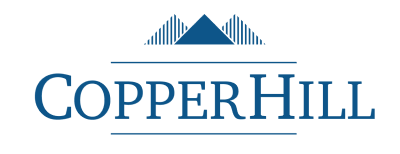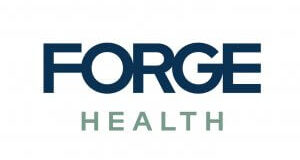 Company Type: Forge Health
Company Type: Forge Health
Industry: Healthcare / Life Sciences
Sub-Industry: Provider – Behavioral Health
Products Purchased: Salesforce Health Cloud, Marketing Cloud, Integration
Forge Health expanded its existing relationship with CopperHill to support an aggressive strategy overhaul: one that positions data as a central asset to drive growth, improve data accuracy, and enable better reporting outcomes.
Forge Health and CopperHill have worked together since 2023 to implement Salesforce, integrate it with their clinical system, Kipu Health EMR, and automate processes to help individuals get the care they need more quickly.
We took a phased approach to implement Forge Health’s data strategy to:
- Ensure high adoption and adherence to policies through incremental changes
- Realize benefits and ROI faster through automations
- Manage resources - both personnel and dollars
- Focus on achieving long term goals through short term tasks
Forge Health
Data Governance: Established rules and procedures defining how Forge Health manages, protects, and uses data.
Master Data Management: Identify all business systems and sources of data. Forge Health is working across 10 systems, including Salesforce, Kipu, CollabMD, and Quickbooks
Data Warehouse: Stores and organizes all of Forge Health’s data in a central repository for easy access and analysis. This new tech is designed to keep information up-to-date, handle large volumes of data, and provide efficient querying capabilities.
Analytics and Intelligence: Better, data-informed decisions to enhance patient outreach, measure the effectiveness of programs, providers, and facilities, optimize staffing, and speed up billing and invoicing.
Automated Integration: Forge Health eliminated manual and custom-coded data extraction, and instead uses AIR Connect middleware to automatically ingest important data from the 10 sources into the Warehouse. This reduces errors and keeps data clean.
Establishing Data Governance
Under CopperHill’s guidance, Forge Health’s executive leadership formalized a Data Committee and Data Governance Strategy – the foundational step in any data management or business intelligence project. These set the rules and procedures that define how they manage, protect, and use their data. This includes identifying all business systems and sources of data, who is responsible for owning that system, the data, and other users that need access or permission.
Our project identified 10 systems (Salesforce, Kipu, Quickbooks, CollabMD to name a few) across care coordinators, patient intake, billing, finance, HR, and other areas of Forge Health’s business. The new policy layered on top of our existing integrations allowed Forge Health to better control employee access to sensitive data and eliminate swivel chair activities, and reduce human intervention, while still giving them the information they need to support patients and operations.
Standing Up a Data Warehouse
Forge Health is using AIR Connect to connect these systems identified above and ingest the data into an AIR Warehouse, following the AWS Well-Architected framework. We built these integrations using a combination of APIs and automated file extractions.
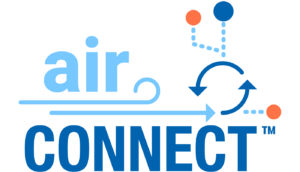
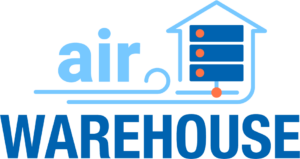
The AIR Warehouse stores and organizes all of Forge Health’s data in a central repository for easy access and analysis. This new tech is designed to handle large volumes of data and provide efficient querying capabilities.
These ingestions run on a set schedule, so the most up-to-date information is available inside the AIR Warehouse for reporting and analysis.
Automating Manual Processes
Once the data is centralized and mastered in the AIR Warehouse, Forge Health leverages a Tableau Bridge connection – meaning Tableau is laid directly on top of the Warehouse, without the need to import data into Tableau.
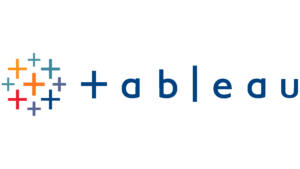
This is a huge enhancement for Forge Health. Prior to our project, they relied on manually extracting data files and custom-coded connections to SFTP folders and source systems, combining files, and uploading them into Tableau. Not only was this a time intensive process, it also introduced a lot of potential risk for bad information due to human manipulation of information, and management was hesitant to trust reports and data.
Better Insights Improve Patient Care and Revenue Cycle Management
Management at Forge Health feels confident relying on their data to help them make data-informed decisions that improve patient care and operations. These include:
- Enhanced, more personalized patient outreach based on clinical assessment screenings and changes or trends in health scores.
- Measure effectiveness of programs, providers, and facilities based on patient’s intake scoring and comparing it to scoring at discharge.
- Optimize clinical staffing based on provider availability, utilization, and predictive analysis to ensure providers are working efficiently, and patients are able to obtain treatment in a timely manner.
- Maximize revenue and minimize financial risk by using analytics to catch billing mistakes, speed up cash receipts, and eliminate manual, time-consuming processes.
Forge Health’s implementation of its data strategy, warehouse, and extended integrations give the team a more complete, accurate view of their business. From managing patient intake to clinical staffing needs, Forge Health is able to leverage its data as an asset to make positioned to make data-driven decisions.
For more information about our integration and data management expertise, please contact us.
